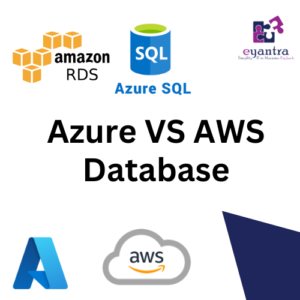Microsoft 365 and Co-Pilot Services
Indian Cloud Server for Indian MSME for Team E-Yantra
Tally on Cloud – Powered by Multiple Cloud Platforms
Ncomputing
Microsoft 365 and Co-Pilot Services
Indian Cloud Server for Indian MSME for Team E-Yantra
Tally on Cloud – Powered by Multiple Cloud Platforms
Ncomputing

Because Azure SQL Database and Managed Instance are based on the most recent stable version of SQL Server, apps are guaranteed to execute on the most recent binaries. IN AWS You can select the version of AWS’s Amazon RDS to utilize, which can be advantageous for compatibility with already-existing applications.
Azure SQL provides solutions for managing many databases via elastic pools in addition to a predictable cost structure for single databases.In Aws Depending on the database engine selected and the resources allotted, Amazon RDS prices can change
With failover groups and active geo-replication, Azure SQL offers disaster recovery features in addition to built-in high availability, High availability and backup solutions are also provided by Amazon RDS, with several choices such as Multi-AZ installations for failover.
Larger database sizes are supported by Azure SQL Managed Instance, which provides instance-level functionality. Depending on the instance type, Amazon RDS can provide SQL Server instances with up to 64 TB of storage.
Microsoft manages Azure SQL services in their entirety, including automated upgrades, backups, and patches. Managed service experience with automated backups, patching, and maintenance windows is offered by Amazon RDS also
Azure SQL provides a consistent cloud experience by being seamlessly connected with other Microsoft products and services where RDS is made to function effectively in the AWS ecosystem, and AWS offers a wide range of services.
These variations enable each service to meet distinct needs and be tailored for certain use cases. In order to select the best service for you, you must consider the requirements of both your application and business. You might want to look at the official documentation and resources offered by both AWS and Azure for a more thorough comparison. or we can help you. to connect us just click on below link and fill up the form we will call you back.